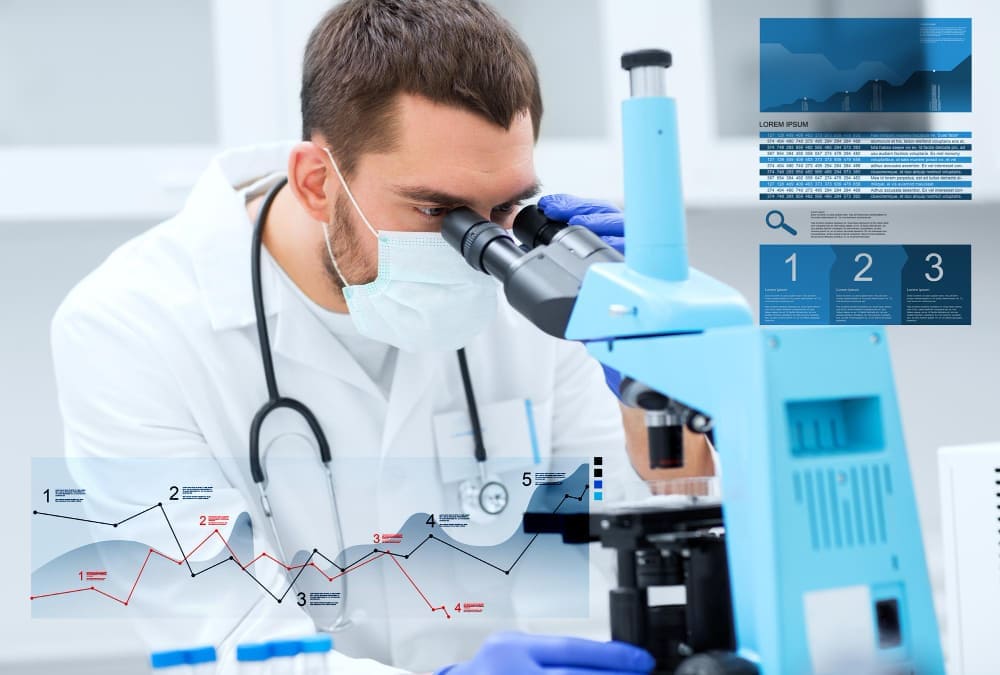India’s diagnostics sector is undergoing a profound transformation, driven by technological advancements, evolving patient expectations, and a growing focus on preventive healthcare. With the industry projected to reach INR 1,360 billion by FY2026 at a CAGR of 14%, diagnostics is becoming a key pillar of the nation’s healthcare system. Currently, pathology accounts for 60% of the sector’s revenue, while imaging and radiology contribute the remaining 40%.
The Organised vs. Unorganised Sector: Bridging the Gap
One of the most pressing challenges in the diagnostics industry is the disparity between organised and unorganised service providers. At present, only 17% of diagnostic services are offered by organised providers, 37% by hospital-based labs, and 46% by standalone unorganised labs. Unlike the unorganised sector, which often lacks standardisation and regulatory oversight, organised players adhere to stringent quality protocols and advanced technologies. The shift towards a more structured industry is essential to ensure reliable and high-quality diagnostic services.
The Need for Accreditation and Regulation
Despite the critical role of diagnostics in healthcare — where 70% of treatment decisions rely on test results — only 3% of Indian laboratories are NABL accredited. This raises concerns about the accuracy and reliability of reports. Enhancing regulatory frameworks and promoting accreditation processes such as Consent to Establish (CTE) and Consent to Operate (CTO) are vital for improving industry standards. Patients are increasingly prioritising accredited labs, recognising their role in ensuring precise diagnoses and better treatment outcomes.
Rising Patient Awareness and Preventive Healthcare
Patients today are more informed and proactive about their health than ever before. They are seeking comprehensive diagnostic evaluations, recognising the link between early detection and effective treatment. The demand for preventive diagnostics is rising, with health check-up packages gaining popularity. However, preventive tests currently account for only 10–12% of total diagnostics, highlighting the need for increased awareness and accessibility.
Technological Advancements: Reshaping Diagnostics
Technology is revolutionising the diagnostics industry by enhancing efficiency, accuracy, and patient experience. Key advancements include:
-
Digitisation of Patient Records: Improving accessibility and seamless integration of healthcare data.
-
Molecular Diagnostics and Genetic Testing: Enabling personalised treatment plans based on individual genetic profiles.
-
Artificial Intelligence and Machine Learning: Enhancing diagnostic precision and efficiency.
-
Point-of-Care Testing: Providing rapid results and enabling timely medical interventions.
-
Data Analytics: Supporting trend analysis for early disease detection and tailored treatment strategies.
The use of AI-driven tools also ensures transparency in health check-ups while maintaining data authenticity, thereby fostering patient trust.
Enhancing Patient Experience and Accuracy
Patient-centric innovations are redefining the diagnostics landscape. Temperature-controlled sample transport, free home sample collection, and smart reports that simplify medical jargon are becoming industry norms. These enhancements reduce diagnostic errors — 60–70% of which occur at the pre-analytical stage — and provide patients with a seamless experience.
Additionally, with non-communicable diseases (NCDs) such as hypertension on the rise, diagnostics play a crucial role in disease management. Trend analysis reports enable doctors to track patient health over time, allowing for more precise and customised treatment plans.
Expanding Access Beyond Metro Cities
Currently, 30–35% of diagnostic tests in India are conducted in metro cities, with a significant portion still handled by unorganised labs. Expanding high-quality diagnostic services to tier 2 and tier 3 cities is crucial for equitable healthcare access. Investments in infrastructure and mobile diagnostic units can bridge this gap, ensuring that quality healthcare reaches all sections of society.
The Rise of New Business Models
Innovative business models are shaping the future of diagnostics in India. Key trends include:
-
Home Collection Services: Providing convenience and accessibility for patients.
-
Subscription-Based Health Packages: Encouraging regular health monitoring.
-
Direct-to-Consumer Testing: Empowering patients with self-monitoring options.
These models cater to the growing demand for personalised and efficient healthcare services, making diagnostics more accessible and user-friendly.
Government Initiatives and Industry Consolidation
Government policies are playing a pivotal role in shaping the diagnostics sector. Regulatory measures are improving service quality and ensuring compliance, while public-private partnerships (PPPs) are facilitating growth. Additionally, industry consolidation through mergers and acquisitions is strengthening organised diagnostic chains, improving cost efficiency, and enhancing service capabilities.
The Future of Diagnostics in India
The Indian diagnostics industry is on a rapid growth trajectory, fuelled by technological advancements, increasing patient awareness, and strategic industry developments. As the sector continues to evolve, its commitment to quality, accessibility, and patient-centricity will be instrumental in shaping the future of healthcare in India. With ongoing innovations and a stronger regulatory framework, the industry is well-positioned to provide accurate, reliable, and efficient diagnostic services to a growing population.
